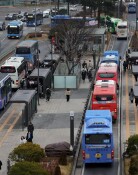Broken pledges of retaliation
Broken pledges of retaliation
Posted November. 25, 2010 11:43,
In the wake of North Koreas artillery attack Tuesday, the South Korean military is under fire for its lack of prompt and stern response, though how much harm it caused on the North remains unknown. The South Korean people are outraged by the deaths of two Marines and two civilians in the attack, following the deaths of 46 sailors in the March 26 sinking of the South Korean naval vessel Cheonan. In less than a year, the North unleashed another deadly attack on Yeonpyeong Island. Seoul cannot and should not tolerate this further. Some also say South Korea should have used combat planes if self-propelled howitzers were inadequate.
In a May 24 speech to the nation on the Cheonan sinking, President Lee Myung-bak stressed the principle of proactive deterrence but has not kept his promise. He said at the time, North Korea will get pay for its action. From now on, the Republic of Korea will tolerate no provocative act by the North and maintain the principle of proactive deterrence. If our territorial waters, airspace or territory are violated, we will immediately exercise our right of self-defense. He promised a manifold retaliation in the event of another provocation and a strike on North Koreas missile base if necessary. But his warnings have proven hollow.
Many wonder if President Lee was resolute in deciding on retaliation. The presidential office initially said he ordered his senior secretaries to take measures to prevent an escalation of the armed clash. The tone of these words is similar to what the president said after the Cheonan sinking: We should not hastily assume the cause of the sinking. About 40 minutes later, the presidential office revised the wording to take resolute countermeasures while making every effort to keep the situation from getting worse, citing an official`s mistake in conveying President Lees comments. An hour later, the office said President Lee never said take measures to prevent an escalation. Criticism of the presidential office is rising over confusion and misrepresentation.
When President Lee visited the Joint Chiefs of Staff headquarters later in the evening, he ordered the military to "strike back multi-fold" to stop the North from contemplating additional provocations. He demanded punishment of the North through action, not just words, but this came six hours after the two Koreas had exchanged fire. It was too late. The presidents comments have left the military confused in responding to the Norths attack.
President Lee must leave military operations in the hands of the Joint Chiefs of Staff and combat rules. On unexpected provocations like the Yeonpyeong attack, the military can respond based on its operations manual. As for the president, his role as a commander-in-chief is to calm the people and urge unity by pledging to protect the country rather than intervening in military operations.
Pyongyangs strategy to scare Seoul is being done through unexpected threats. If the South continues its policy of keeping the situation from getting worse, its military can respond in a limited manner. The incumbent government in Seoul will be no different from the previous Kim Dae-jung and Roh Moo-hyun administrations, which were swayed by the North. Such a soft and weak response will only pave way for more brutal attacks by Pyongyang.
The impact of the Yeonpyeong attack on South Koreas financial markets was limited. Strategy and Finance Minister Yoon Jeung-hyun told a meeting of the National Assemblys Special Committee on Budget and Accounts, The economic impact will be limited on the condition that there are no further provocations. Credit rating agencies such as Standard and Poors, Moodys and Fitch also ruled out a negative impact from the attack on South Koreas sovereign credit rating.
A commander-in-chief should never take the risk of judging national security matters with a business mindset. A former businessman, President Lee might have feared the adverse economic impact of the Norths attack. He should remember, however, that economic stability and prosperity are supported only through a strong national defense.







